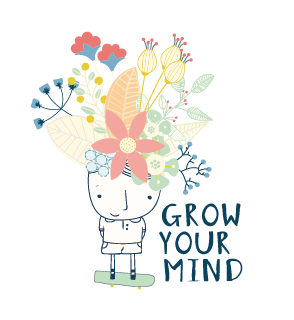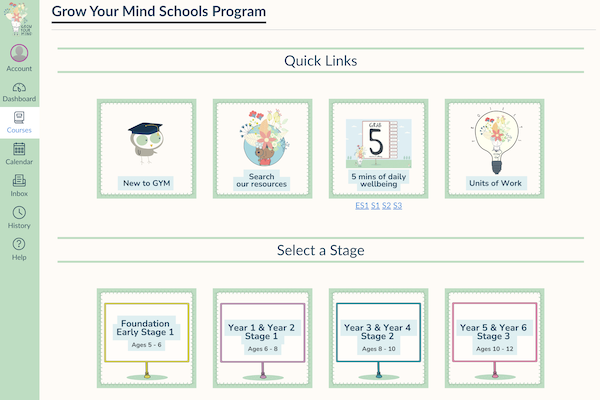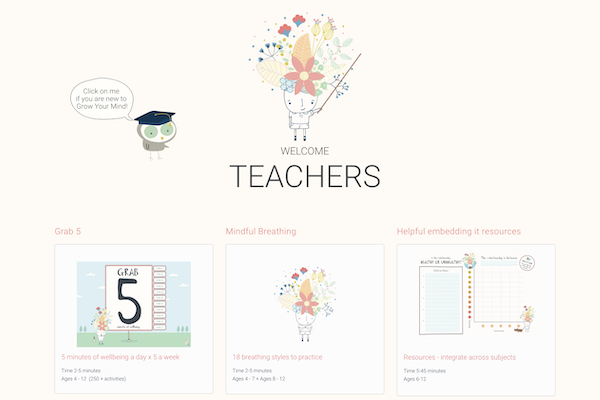by Alice Peel October 1, 2021
Mental health and wellbeing tends to be tucked tidily into the PDHPE curriculum. This to date has highlighted to all that it is a requirement of Australian schools to teach mental wellbeing. However, as I sat and listened to Christine Morgan (the CEO of the National Mental Health Commission and National Suicide Prevention Adviser to Prime Minister Scott Morrison) during the recent PESA conference, I felt my ears prick and my skin tingle. Christine planted the seed that perhaps mental health education needs to be in it’s own lane in the curriculum. The reasoning: you can’t separate learning and wellbeing.
When we know the tools we can draw on when times are tough, we are able to learn, we are able to maintain healthy relationships and we feel safe. We also have a greater chance of enduring positive mental health if we know who we can call on, not if but when things go wrong.
As the co-founder of a mental health social venture and as a primary school teacher my heart sings thinking of mental health education having its own lane in the current curriculum! And yes, I can hear you screaming – ‘…but the curriculum is so crowded, how can we fit in another thing?!’ I would respectfully backchat and say: when we help students thrive, they learn better and our classrooms and schools are healthier as a result!
Perhaps it is less about mental health and wellbeing having its own lane and more about bringing wellbeing to life in all areas of the curriculum. When we train teachers to implement Grow Your Mind we implore them to make it real and authentic for their school setting. And to embed wellbeing in multiple areas of the curriculum.
For example, growth mindset is often a topic that students explore during the PDHPE and Grow Your Mind curriculum. They may even discover the learning pit and intellectually understand that learning takes perseverance, that mistakes help us learn and that indeed there is always an uncomfortable part of learning. They get it. But when it comes to a maths task that they find tricky suddenly growth mindset disappears. Emotionally they are not there yet, they give up, they avoid or they disrupt. This is why we strongly encourage schools that use Grow Your Mind, to display and refer to our resources outside of the PDHPE allocated 45 minutes! We need to remind students as they struggle, that learning can be hard but that they can do hard things. We need to also remind them of the steps needed to do these hard things (and spoiler alert it does not involve doing it all on their own)!

The Grow Your Mind Growth Mindset Tree
Here’s the thing, we are forgetful. Hence all of that reminding I was talking about. We forget that we are wired for resilience, and our students forget this quickly too. The reason I like the swimming lane analogy and the concept of wellbeing embedded in all areas of the curriculum is there is so much content, so many fantastic tools that we can be sharing with our educators and with our students to ensure that they know they can cope, they can survive and thrive from adversity is this: it will allow us to offer wellbeing in the most rich, effective and sustainable way.
Over the last two days I have listened to Sam Bloom, a representative talk about Eddie Jaku, Cathy Freeman and more. What are the reoccurring messages from these resilient, intelligent and big hearted humans?


- Surround yourself with fantastic people who you can depend on
- Do the things you love in life
- Don’t hate anyone – it destroys your enemies but also yourself in the process
- Know your values and try to live by them
- Be thankful for all that you have, try not to take any day for granted
(Incidentally all of this sounds a lot like our Growing Resilience Rap!)
I have also heard from experts in the field of positive psychology and wellbeing. What are they saying?
1. Build agency in students by celebrating eccentricity and providing not only intellectual challenges but emotional ones too.
2. Use what’s strong to deal with what’s wrong. Keep your signature strengths at the top of your mind, pick one of the 24 and cultivate it. Use this signature strength in a new way each day.
3. Every year, as a school, ask: what do we want our wellbeing focus to be? What are the students saying? What are the school staff saying? What are we trying to measure and how do we know if we are doing it well?
4. Schools have an opportunity to create a culture of wellbeing that promotes a child’s mental health from the day they start until the day they finish.
If you have read this far I am no doubt preaching to the converted. We know that wellbeing is essential for learning.We need to get the not-so-converted on board too. Slowly and in a way that is meaningful for them. Perhaps, as Dr Lucy Hone and Dr Denise QuinLan say, it starts with one concept that you encourage your slightly sceptical teacher to try. It needs to be a topic that they have an interest in. E.g. being of benefit, character strengths, emotional regulation, conflict resolution, kindness, grit etc. Encourage them and ask them for direct feedback after they have tried it. Repeat, stay curious and be patient!
Personally I love the idea of number 1: celebrating eccentricity! I
If you are after a dose of eccentricity yourself have a listen to: Cheeky Chats with Alice
It is 5 minutes in length and I share 3 things that have been helping my own mental health lately. And they aren’t what you might think.
So go forth readers and educators, let’s continue on our mission to provide accessible, life-long tools to support healthy and resilient minds.


